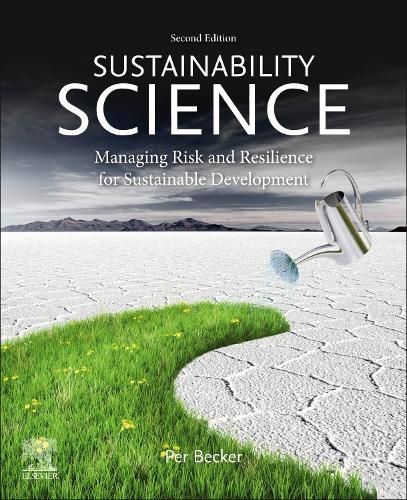Readings Newsletter
Become a Readings Member to make your shopping experience even easier.
Sign in or sign up for free!
You’re not far away from qualifying for FREE standard shipping within Australia
You’ve qualified for FREE standard shipping within Australia
The cart is loading…






Sustainability is increasingly important across functional sectors and scientific disciplines. Policy-makers, practitioners, and academics continue to wrestle with the complexity of risk, resilience, and sustainability, but because of the necessary transdisciplinary focus, it is difficult to find authoritative content in a single source. Sustainability Science: Managing Risk and Resilience for Sustainable Development, Second Edition, contributes to filling that gap and is completely revised with several new chapters. It asserts that all efforts for the sustainability of humankind are undermined by the four fundamental challenges of complexity, uncertainty, ambiguity, and dynamic change. While there are no silver bullets, this book contends that we need systems approaches, risk approaches, participatory approaches, and resilience approaches to address each of them and endeavours to provide such. With that in mind, this book describes the state of the world (Part I), proposes a way to approach the world (Part II), and suggests how to set out to change the world (Part III).
$9.00 standard shipping within Australia
FREE standard shipping within Australia for orders over $100.00
Express & International shipping calculated at checkout
Sustainability is increasingly important across functional sectors and scientific disciplines. Policy-makers, practitioners, and academics continue to wrestle with the complexity of risk, resilience, and sustainability, but because of the necessary transdisciplinary focus, it is difficult to find authoritative content in a single source. Sustainability Science: Managing Risk and Resilience for Sustainable Development, Second Edition, contributes to filling that gap and is completely revised with several new chapters. It asserts that all efforts for the sustainability of humankind are undermined by the four fundamental challenges of complexity, uncertainty, ambiguity, and dynamic change. While there are no silver bullets, this book contends that we need systems approaches, risk approaches, participatory approaches, and resilience approaches to address each of them and endeavours to provide such. With that in mind, this book describes the state of the world (Part I), proposes a way to approach the world (Part II), and suggests how to set out to change the world (Part III).